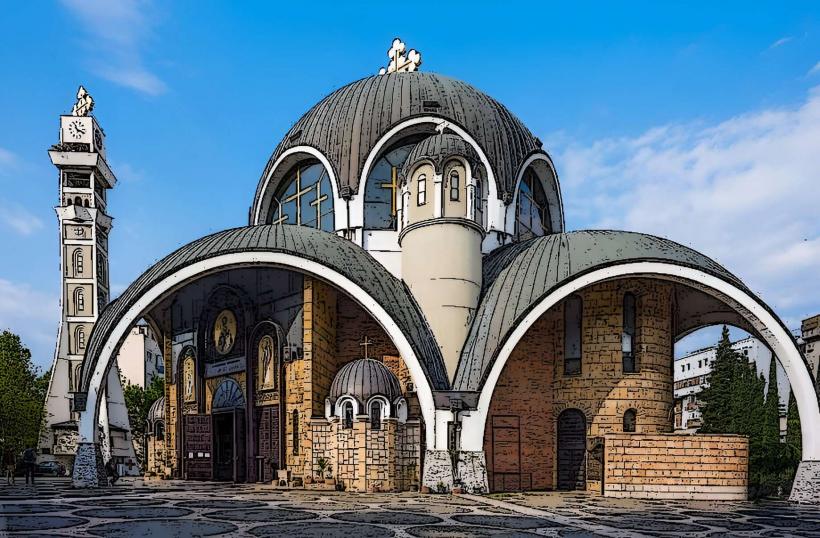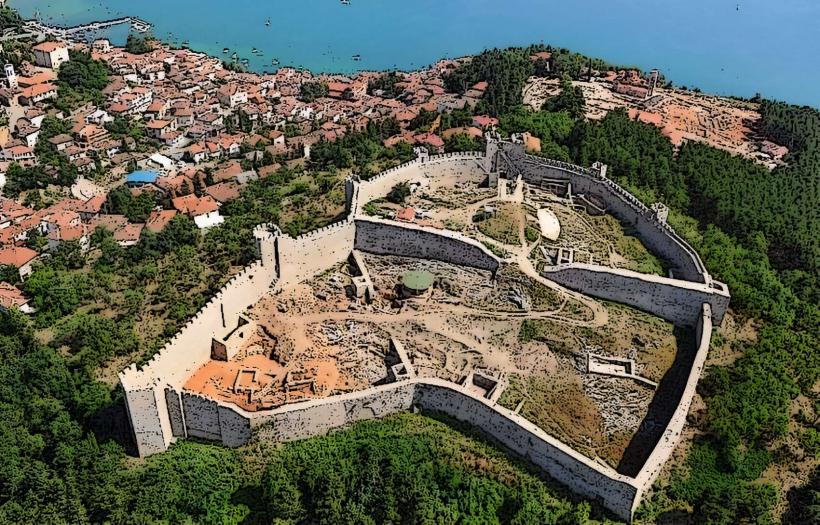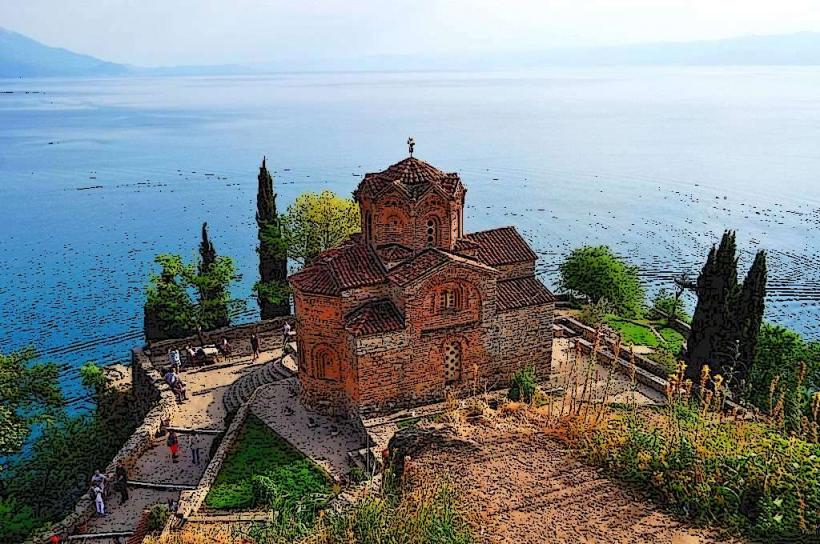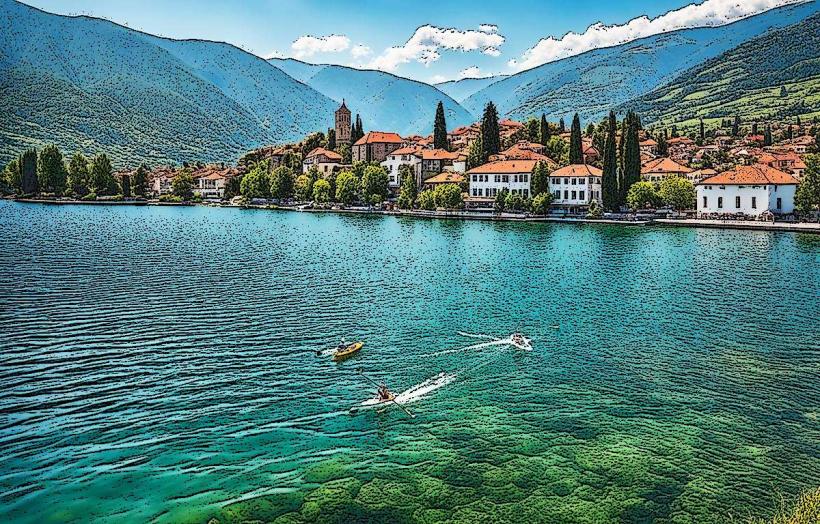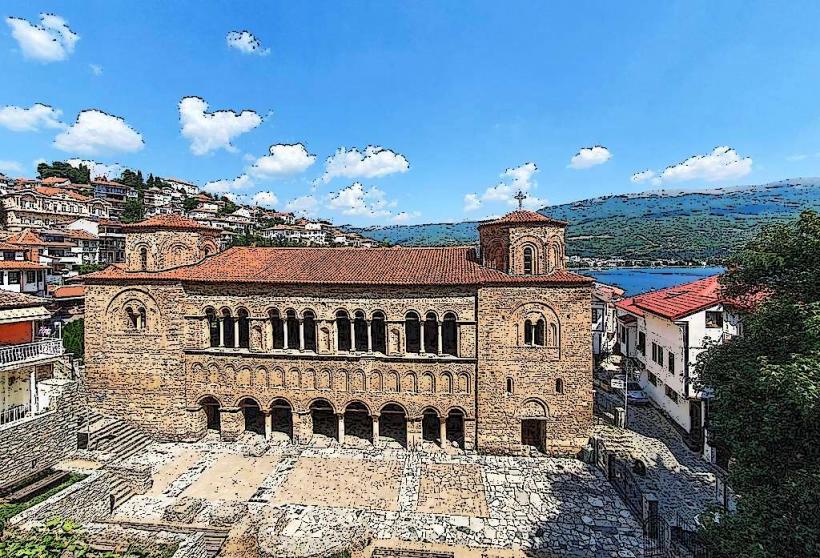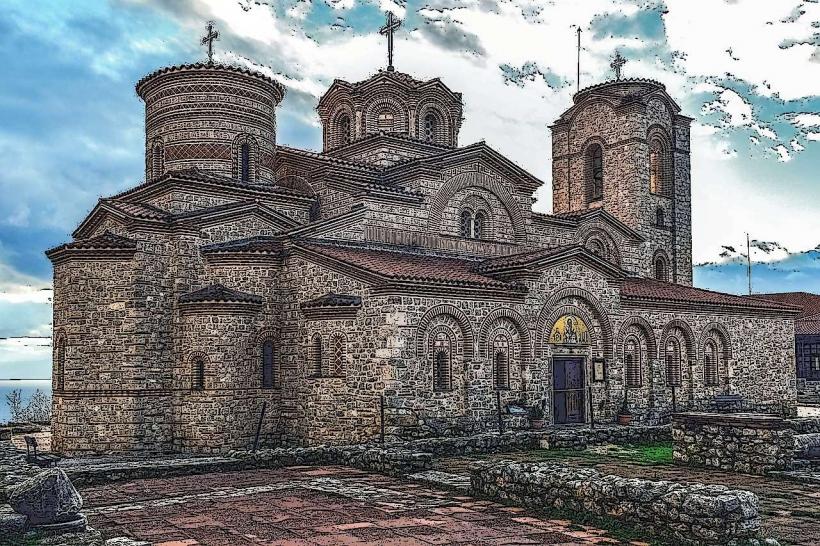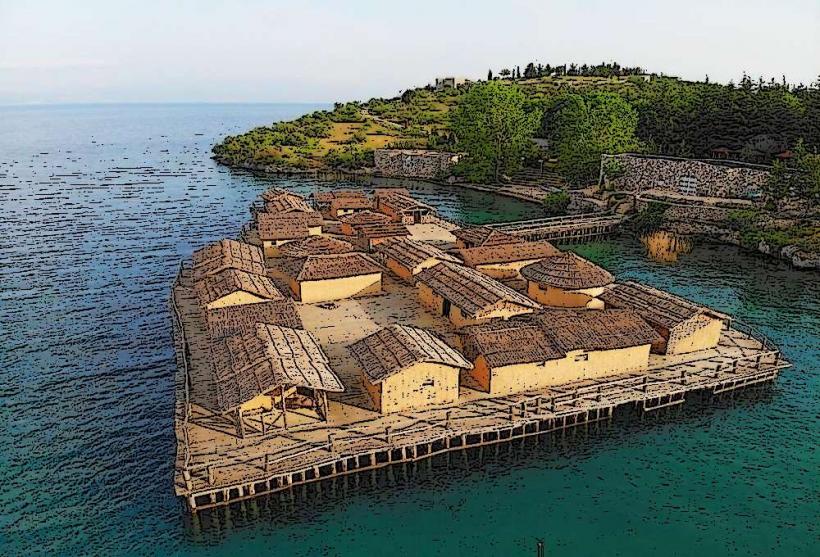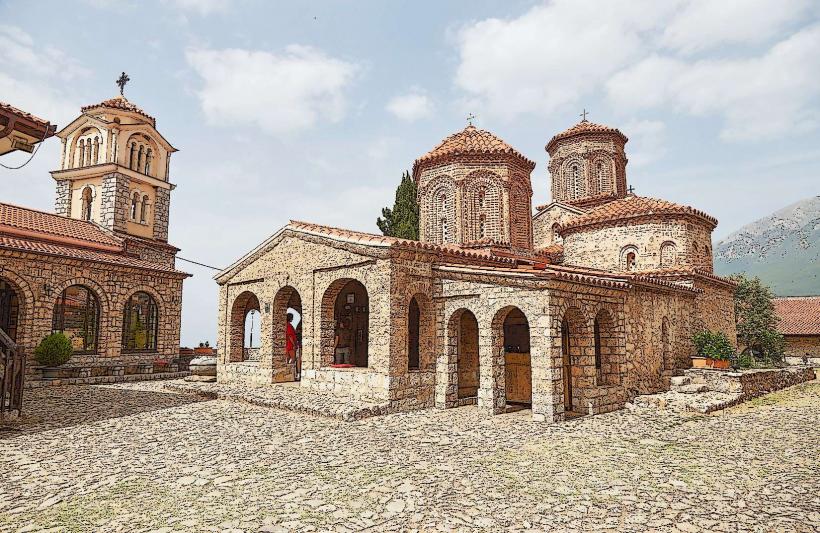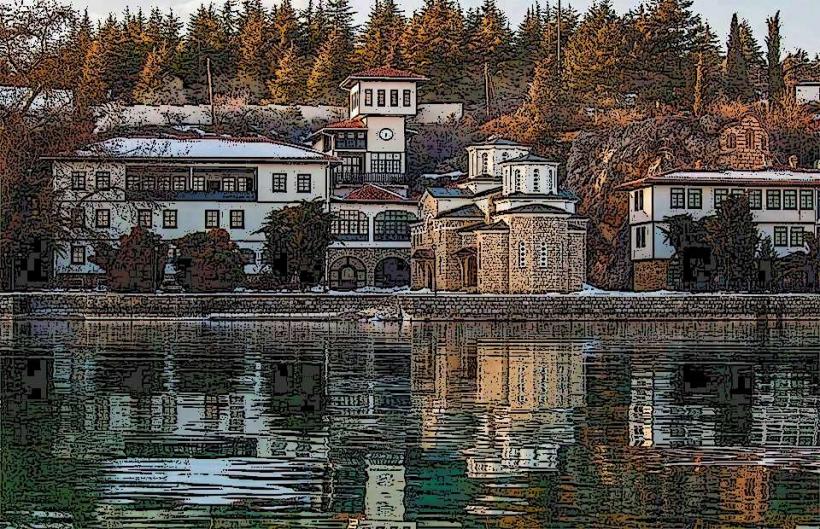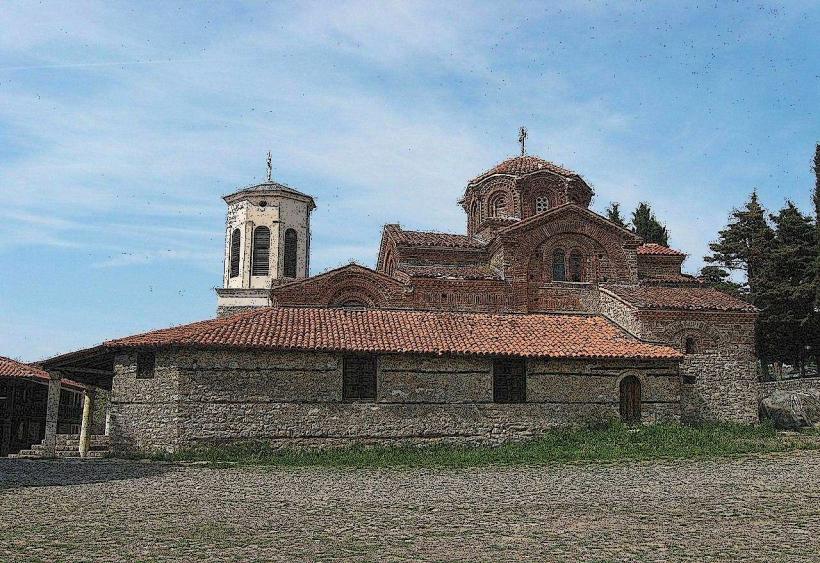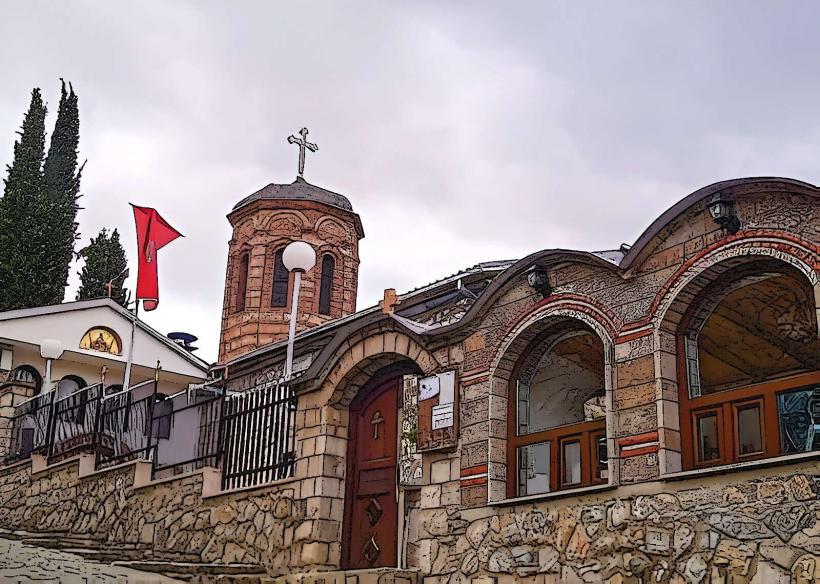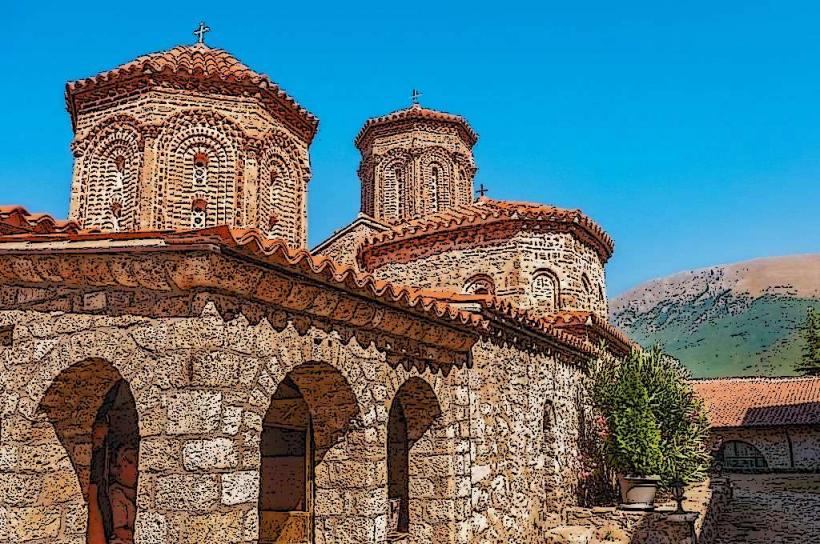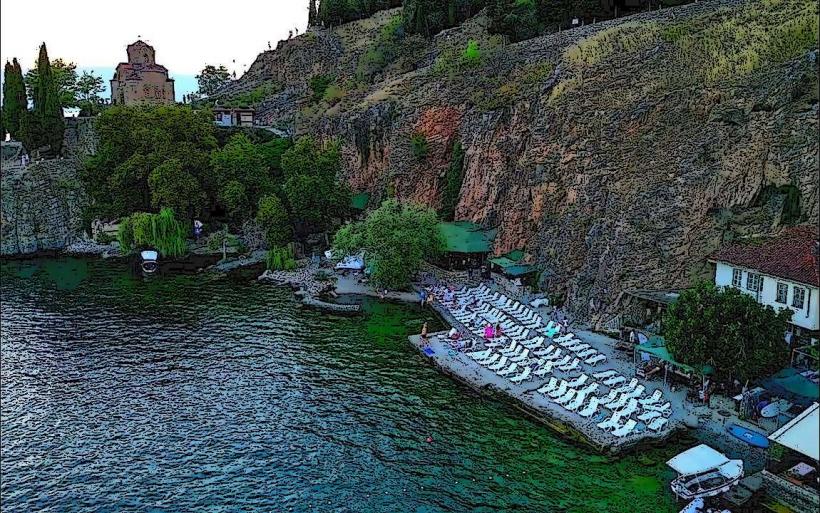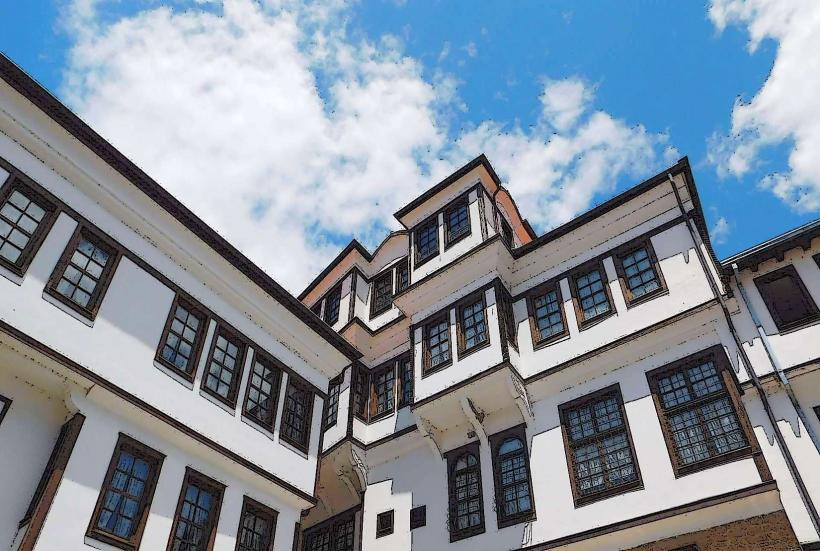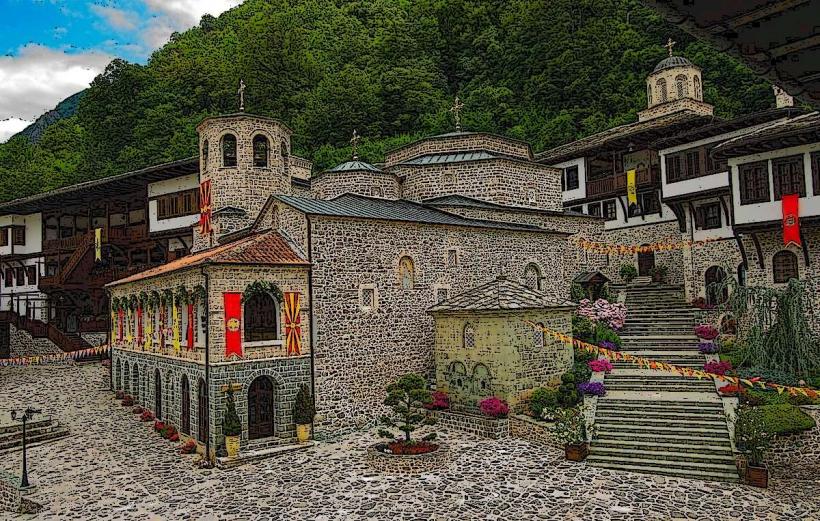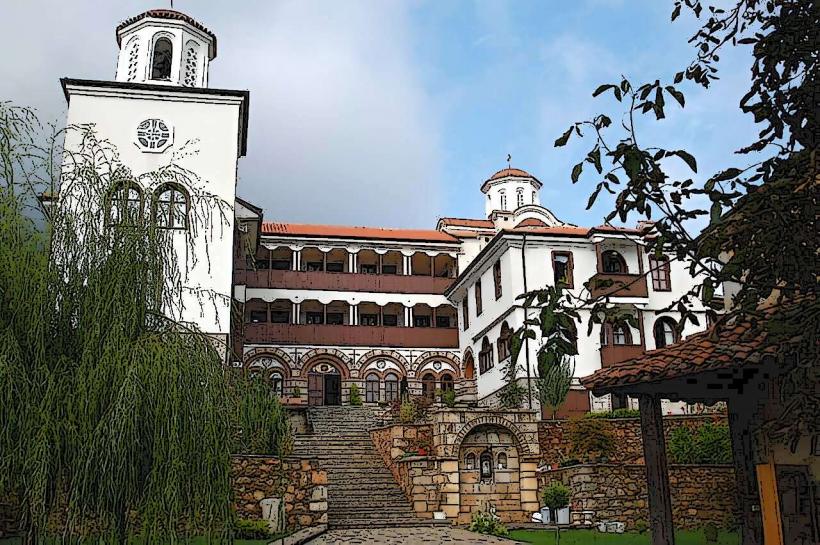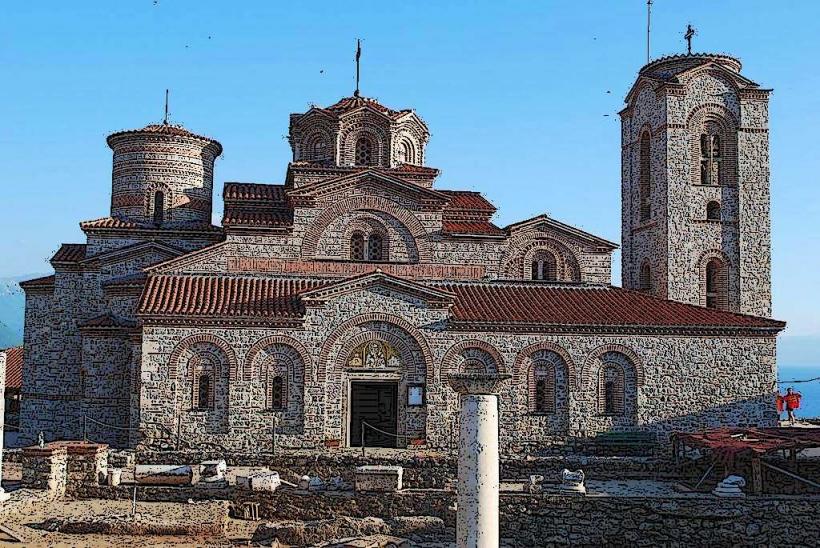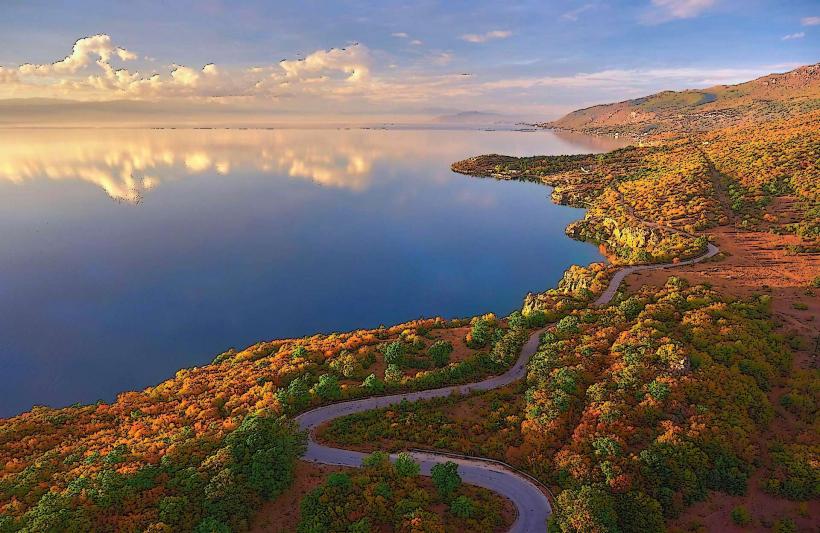Information
Landmark: Tsar Samuel's FortressCity: Ohrid
Country: North Macedonia
Continent: Europe
Tsar Samuel's Fortress, Ohrid, North Macedonia, Europe
Samuil’s Fortress (also known as Samuel's Fortress or Ohrid Fortress) is a historic and strategic fortress located on a hill overlooking the town of Ohrid and Lake Ohrid in North Macedonia. The fortress is an important historical and cultural landmark, and it plays a significant role in the region's medieval history.
Overview
- Location: The fortress is situated on a hill on the western edge of the Old Town of Ohrid, offering stunning panoramic views of the town, the lake, and the surrounding mountains. It is one of the most prominent historical landmarks in Ohrid and is a key part of the UNESCO World Heritage Site that encompasses the cultural and natural heritage of the region.
- Historical Significance: Samuil’s Fortress is closely associated with King Samuil, the ruler of the First Bulgarian Empire in the 10th and early 11th centuries. The fortress was a stronghold of the Bulgarian Empire during this period and played a critical role in the defense of the region against various invaders.
History
Construction:
- The fortress was originally constructed by the Byzantines in the 4th century, though it underwent significant expansion and fortification during the reign of Tsar Samuel (or Samuil) in the 10th century. He was the Emperor of the First Bulgarian Empire and used the fortress as a base to defend his territory against Byzantine invasions.
- King Samuil expanded and strengthened the fortress in the late 10th century, and it became a major military stronghold during his reign. The fortress was strategically important as it provided a strong defensive position overlooking the surrounding area.
The Battle of the Gates of Trajan (1014):
- One of the most significant events in the history of Samuil’s Fortress was the Battle of the Gates of Trajan, fought in 1014 between the Byzantine Empire and the Bulgarian Empire. The battle was a devastating defeat for Tsar Samuel and his army at the hands of the Byzantine Emperor Basil II.
- According to historical sources, after the battle, Basil II ordered the blinding of 15,000 Bulgarian soldiers, and this brutal act earned him the nickname "Basil the Bulgar Slayer." The loss of this battle, along with the subsequent weakening of Bulgarian power, led to the eventual decline of the First Bulgarian Empire.
Later History:
- After the fall of the Bulgarian Empire, the fortress passed into the hands of the Byzantines. It was later used by various other powers, including the Ottomans, although it was never restored to its former strength.
- The fortress gradually fell into disrepair over the centuries, but its historical importance remained, and it was preserved as a major historical and tourist site.
Architecture and Features
Fortifications:
- Samuil’s Fortress is known for its massive stone walls, which were designed to defend against attacks from both land and water. The fortress walls are built of large, rough-hewn stones, characteristic of medieval fortifications.
- The fortress has a rectangular layout and is surrounded by a series of defensive walls and towers, including several corner towers and a main entrance. The entrance was protected by a gatehouse that controlled access to the interior of the fortress.
- There are several watchtowers along the walls, providing strategic positions to guard the surrounding area and to keep watch over the approach from the lake.
The Citadel:
- At the highest point of the fortress hill is the citadel, the heart of the fortifications. This area would have housed the royal residence, administrative offices, and military command centers during the fortress’s peak. The citadel also provided the best vantage point for military observation and defense.
The Walls:
- The fortress walls are remarkably well-preserved, offering an opportunity for visitors to explore the outer perimeter and gain insight into how the fortress would have looked during its prime. The walls are about 10 meters high in places and offer excellent views of the Lake Ohrid and the town below.
- The fortress was built on a steep hill, making it naturally defensive, and the walls were reinforced with towers and bastions at strategic points.
Interior:
- The interior of the fortress is less developed, but visitors can still see remnants of ancient structures and churches that were once part of the complex. Some archaeological excavations have revealed traces of medieval buildings, and visitors can walk along the preserved sections of the fortress walls.
- A significant feature inside the fortress is a small chapel that likely served religious purposes during the time of its use.
Visitor Experience
Panoramic Views:
- The position of Samuil’s Fortress on a hill offers visitors breathtaking views of the town of Ohrid, Lake Ohrid, and the surrounding landscape. From the top of the fortress, one can see the expansive waters of the lake and the distant mountains, making it an excellent location for sightseeing and photography.
Tourist Attraction:
- The fortress is one of the most visited sites in Ohrid and is open to tourists year-round. Visitors can explore the fortress walls, watchtowers, and citadel, and learn about the medieval history of the region through informational displays and guided tours.
- The site is also home to several archaeological artifacts and remains, making it a great destination for those interested in ancient history and archaeology.
Preservation and Restoration:
- In recent years, efforts have been made to preserve and restore the fortress. Some of the walls have been reinforced, and parts of the structure have been renovated to ensure its survival as an important historical monument.
Cultural and Historical Importance
- Samuil’s Fortress is not only an important historical site in North Macedonia but also a symbol of the First Bulgarian Empire and its defense against external threats. The fortress played a crucial role in the medieval history of the Balkans and the relationship between the Byzantine Empire and the Bulgarian Empire.
- The Battle of the Gates of Trajan is one of the most defining events associated with the fortress and is commemorated as part of Bulgarian and Byzantine history.
Conclusion
Samuil’s Fortress is a remarkable historical site that offers both cultural insight and scenic beauty. As a symbol of the First Bulgarian Empire and its struggle against the Byzantine forces, it is a key part of the medieval history of the Balkans. Its imposing fortifications, historical significance, and breathtaking views make it one of the must-visit attractions in Ohrid and North Macedonia.

